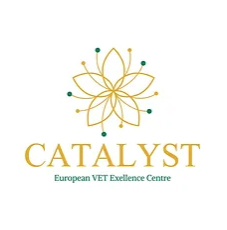Inquérito aos jovens sobre o mercado de trabalho e o sistema de segurança social em Portugal
Investigadora
O projeto “Inquérito aos jovens sobre o mercado de trabalho e o sistema de segurança social em Portugal” resulta de uma parceria entre o Observatório das Desigualdades e o Observatório do Emprego Jovem, ambos filiados no Iscte-Instituto Universitário de Lisboa. Surge na sequência de um convite da Comissão para a Sustentabilidade da Segurança Social, criada pela Ministra do Trabalho, Solidariedade e Segurança Social do XXIII Governo Constitucional de Portugal, enquadrada através do Despacho n.º 9126/2022, de 26 de julho. O estudo assenta num questionário dirigido a jovens, que visa recolher informação sobre a situação no mercado de trabalho e as representações e perceções acerca da segurança social. Esta pesquisa é, todavia, independente e cientificamente autónoma das análises e das perspetivas desenvolvidas pela Comissão.
Os dados foram recolhidos entre 12 de dezembro de 2022 e 29 de janeiro de 2023, através de um inquérito online, através de uma amostra bola de neve, que beneficiou de contactos institucionais e de redes sociais. A amostra, após a validação da base de dados, é de 5.077 jovens, com idades compreendidas entre os 18 e os 35 anos com uma distribuição relativamente uniforme em termos etários. Da análise dos resultados irá ser produzido um livro coletivo e espera-se a elaboração de outras publicações.
Informação do Projeto
2022-11-01
2024-12-31
Parceiros do Projeto
- CIES-Iscte - Líder
European VET Excellence Centre for Leading Sustainable Systems and Business Transformation
Investigadora
O projeto CATALYST “European VET Excellence Center for Leading Sustainable Systems and Business Transformation” foi concebido com forte visão e motivação para contribuir para a realização do Pacto Ecológico Europeu e das novas Estratégias Industriais e PME. (mais informação disponível no website do projeto.
Informação do Projeto
2022-06-01
2026-05-31
Parceiros do Projeto
Reconstruir a solidariedade numa era de dualização do emprego
Investigadora
Vários autores que contribuem para a área da economia política comparada argumentam que o mercado de trabalho está cada vez mais dualizado. Alguns trabalhadores são cobertos por convenções coletivas, têm contratos estáveis e acesso à proteção social tradicional, enquanto que outros têm contratos atípicos, têm acesso a uma proteção social menos generosa e não são cobertos por convenções coletivas. Esta dualização é o resultado de um conjunto reformas à legislação laboral que possibilitaram um maior uso dos contratos atípicos; de reformas ao Estado Social que reduziram o âmbito da segurança social e alargaram a utilização de medidas de assistência social; e por reformas à negociação coletiva que reduziram a cobertura das convenções. A recente crise económica provocada pela pandemia COVID-19 tornou ainda mais evidente a necessidade de repensar esta divisão. A questão de investigação a que este projeto procura responder é a seguinte: em que condições é possível superar a dualização e gerar maior solidariedade? O projeto foca-se numa dimensão-chave da dualização: a regulação dos contratos atípicos, isto é, contratos a termo certo, trabalho independente e trabalho temporário. Na nossa perspetiva, o tipo de contrato constitui um elemento chave da dualização. Assim, quando falamos em reformas que aumentam a solidariedade, referimo-nos a reformas inclusivas que aumentam a regulação dos contratos atípicos. O argumento principal deste projeto é o de que promover a solidariedade implica agir a três níveis: legislação laboral (nacional), negociação coletiva (meso e micro) e democracia no local de trabalho (micro). A legislação laboral tem um papel decisivo na definição das condições de admissibilidade dos contratos atípicos. Os acordos coletivos são importantes porque podem definir condições melhores (ou piores) do que as estabelecidas no código do trabalho. E é no nível do local de trabalho que a regulamentação é respeitada ou não. Seguindo os apelos recentes de alguns cientist...
Informação do Projeto
2021-03-01
2025-02-28
Parceiros do Projeto
- DINAMIA'CET-Iscte (IT) - Líder
- CIES-Iscte
Observatório do Emprego Jovem
Investigadora Responsável
O Observatório de Emprego Jovem (OEJ) enquadra-se na Unidade de Investigação DINÂMIA’CET-Iscte (Centro de Estudos Sobre a Mudança Socioeconómica e o Território) e é financiado pela FCT - Fundação para a Ciência e a Tecnologia (Projeto Estratégico Programático - Refª UIDP/03127/2020). O OEJ propõe-se a criar um repositório de conteúdos e investigações dedicados exclusivamente ao mercado de trabalho dos jovens, aproveitando as sinergias e os espaços de interação entre os projetos do DINÂMIA’CET dedicados à área do Trabalho. O foco do Observatório recai sobre três áreas de estudo - desemprego jovem, qualidade de emprego dos jovens, e políticas de emprego dirigidas aos jovens – acerca das quais se pretende, como objetivo central do projeto, produzir publicações com elevado impacto na sociedade, nomeadamente relatórios e policy briefs, e disponibilizar dados chave regularmente atualizados.
Informação do Projeto
2020-10-02
--
Parceiros do Projeto
- DINAMIA'CET-Iscte (IT) - Líder
Aproximar o Ensino Superior, a Formação e a Qualidade do Emprego
Investigadora Responsável
São os empregadores atores ativos no processo de construção e oferta de competências pelos jovens graduados? Como interagem os empregadores com universidades para influenciar as competências dos graduados? As empresas dependem da disponibilidade de competências em tempo útil para competir e crescer, enquanto os trabalhadores dependem das suas competências para aceder a empregos, especialmente os de boa qualidade. Este programa de pesquisa (PP) visa analisar estratégias dos empregadores para aceder a competências de que precisam quer através do recrutamento de indivíduos qualificados no mercado de trabalho (MT), quer da formação da mão-de-obra disponível. Esta escolha reflete a alternativa de fazer-ou-comprar típica de qualquer fator de produção. Todavia, a escolha torna-se crítica para a sobrevivência da empresa quando se trata de recursos humanos (RH) e das incertezas em torno dos resultados que visam o seu desenvolvimento. Tendo em atenção o papel dos graduados do ensino superior (ES) no crescimento e nos processos de inovação, este PP incide sobre graduados e pósgraduados do ES. Quando é que as empresas preferem graduados prontos-a-trabalhar ou prontos-a-aprender? Que características particulares incentivam a formação? Que soluções podem suportar a transição universidade-trabalho e reduzir ou evitar problemas de competências? O pressuposto é que o ajustamento entre oferta e procura de competências depende da capacidade do ES de dotar os estudantes com competências apropriadas mas também das políticas e práticas de RH. Este PP explora estratégias de antecipação e solução e prossegue cinco objetivos específicos: 1) identificar competências para empregabilidade de jovens graduados para MT nacionais e internacionais; 2) analisar estratégias das empresas para aceder e desenvolver competências requeridas; 3) explorar expetativas dos empregadores relativamente às instituições do ES; 4) analisar o impacto das políticas de competências na qualidade do emprego dos jovens g...
Informação do Projeto
2018-10-01
2022-07-31
Parceiros do Projeto
- DINAMIA'CET-Iscte (IT) - Líder
Da desvalorização interna à revalorização do trabalho: o caso de Portugal
Investigadora
Este projeto analisa as transformações do regime de emprego ocorridas em Portugal, nas últimas duas décadas, no contexto da reestruturação da economia global e das suas consequências no emprego e no trabalho. Os impactos adversos no trabalho da crescente internacionalização da produção e da concomitante financeirização têm sido evidentes num país vulnerável à deslocalização da produção, aos desequilíbrios macroeconómicos e ao endividamento. Estes impactos atingiram o seu apogeu com a crise financeira global e o consequente resgate financeiro da tróica em 2011. O Memorando de Entendimento especificou uma reconfiguração do regime de emprego, orientada para a desvalorização interna, que veio a ser levada à prática, afetando instituições e regras sobre a proteção do emprego, os tempos de trabalho, as prestações de desemprego e a negociação coletiva. Com base em investigação anterior que caracterizou a reconfiguração institucional associada à desvalorização interna como regressiva e responsável pela transferência de rendimento do trabalho para o capital e pelo desequilíbrio de poder desfavorável às organizações dos trabalhadores, o projeto pretende ampliar esta pesquisa por duas vias. Primeira, alargar a avaliação da desvalorização do trabalho a dimensões-chave da qualidade do emprego e condições de trabalho que possam ter sido diretamente afetadas em resultado da reconfiguração do regime de emprego (em particular, salários, tempos de trabalho e segurança do emprego). Segunda, identificar as consequências de longo prazo da ?desvalorização interna, os seus mecanismos impulsionadores e os meios para os neutralizar, através da análise estratégias dos atores e dos seus recursos de poder ao nível nacional, sectorial e de empresa. O projeto parte da conjetura de que a reconfiguração do regime do emprego em Portugal e a desvalorização interna podem ter acelerado um processo de desvalorização cumulativa do trabalho, envolvendo perdas de competência e aptidão, retração de investi...
Informação do Projeto
2018-09-15
2022-06-14
Parceiros do Projeto
- DINAMIA'CET-Iscte (IT)
- CES-UC - (Portugal)
Qualitative study on coping strategies in the Crisis: How do Portugueses Citizens cope with economic shock?
Investigadora
N.A.
Informação do Projeto
2013-08-05
2013-11-01
Parceiros do Projeto
Qualitative study on coping strategies in the Crisis: How do Portuguese citizens cope with economic shock?
Investigadora
Este projeto teve como objetivo investigar detalhadamente as condições de vida dos indivíduos atingidos pela crise e entender com sua cooperação como eles lidaram com o choque económico que experimentaram ou ainda estão experimentando.
Metodologia: O trabalho procurou: Identificar os estudos mais recentes em Portugal sobre este assunto; Uma breve caracterização do fenómeno do desemprego nos últimos 5 anos; Identificação dos entrevistados com base nos critérios fornecidos pelo Coordenador conforme estabelecido no quadro metodológico para as entrevistas; As realizações das 15 entrevistas presenciais para entender como as pessoas foram afetadas pela crise com as diretrizes fornecidas pelo Coordenador; Uma transcrição de palavras das entrevistas no idioma original e em inglês; Analise e sintetize os principais achados da entrevista elaborando um relatório.
Informação do Projeto
2013-01-01
2013-12-31
Parceiros do Projeto
Flexible wages for flexible contracts? The dynamics of the relationship between wage policy and employment contracts at the firm level
Investigadora Responsável
Who benefited most from the re-regulation of labour markets which affected most of EU countries in the 1990s? The guidelines of the European Employment Strategy stress the need to promote flexibility combined with employment security and to ensure employment-friendly labour cost developments and wage-setting mechanisms [Ce05]. Despite higher occupation and employment rates, the outcome of 20 years of labour market flexibility is not clear yet. Flexibility allowed employers to face increasingly competitive markets, yet claims exist that contract flexibility was also used to cut labour and training costs [RaScHa00]. Contract flexibility has also been accused of driving large shares of younger workers and other groups of disadvantages employees to career paths characterised by temporary contracts, lower wages, poor working conditions, and low training. Literature on employment relationships has achieved important results, but several gaps still exist. The core idea of this research project is that wage dynamics and the use of flexible contracts are driven by the wage policy of a firm and by environmental conditions. Thus, the research programme jointly developed by a Portuguese and an Italian research unit, will take advantage of two national administrative linked employer-employee panel databases: Quadros do Pessoal, and Work Histories Italian Panel (WHIP). The research programme is based on a multidisciplinary, comparative, and pluralist approach and it is expected to produce new theoretical models and empirical evidence on the joint use of contract flexibility and targeted wage policies by firms.
Informação do Projeto
2010-01-01
2012-12-31
Parceiros do Projeto
Domestic work and domestic workers: Interdisciplinary and compared perspectives
Investigadora
The Project provided an interdisciplinary and comparative analysis of the phenomenon of domestic work, including some new empirical research. It mainly concerned the nature of the legal regulation of domestic work and domestic workers, contextualized by socio-legal and socio-economic analysis. Its focus is on law and society, including the impact of changes in the law on society, and encompassed both issues arising from domestic work and issues concerning domestic workers. The Project is focused on Portugal, where there has been no study of the legal implications of the nature of domestic work and the employment relationship, the identity of the workers, or the wider impact of the commodification of such domestic work. It will also consider, in a comparison, the United Kingdom, Brazil, India and Mozambique.
Informação do Projeto
2007-01-01
2011-12-31
Parceiros do Projeto

 English
English





